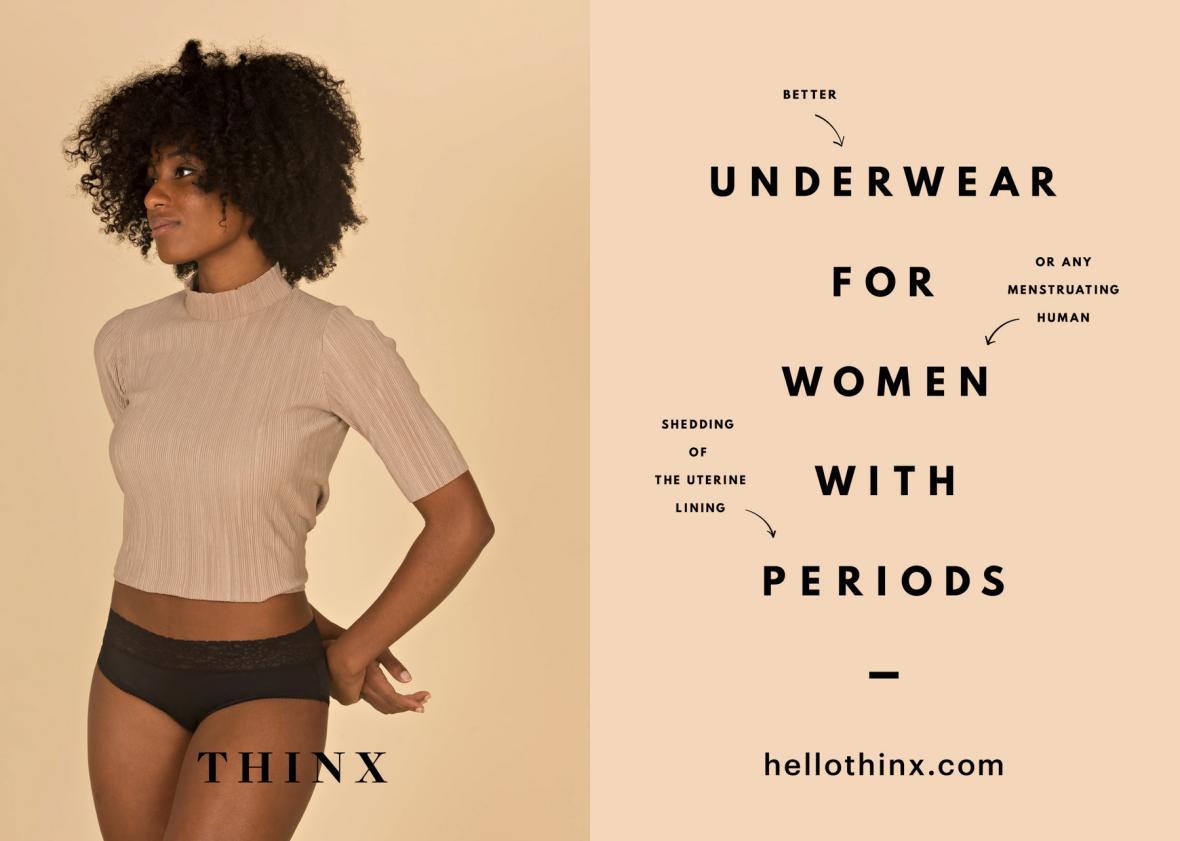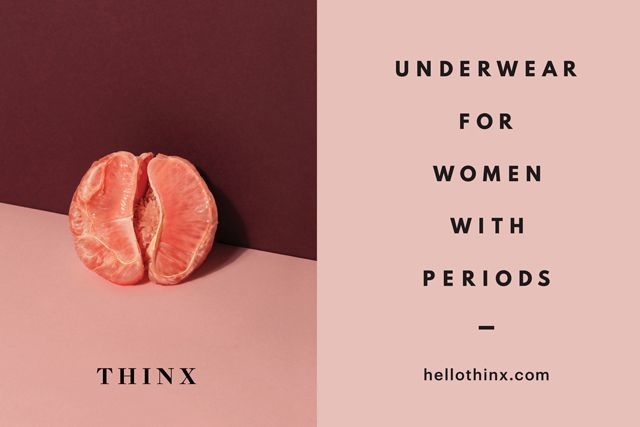“I am an encyclopedia of knowledge about the nether regions,” says Miki Agrawal. She’s not lying. Miki is a social entrepreneur (and author and restaurateur and TED Talk pro) whose three current projects are all attempting to changing the world, starting from the waist down. They are: THINX, the first and only brand of period-proof underwear (ads for which were almost banned from the New York subway last month). ICON, a line of cute and absorbent underwear “for women who tinkle,” which will launch on November 12. And Tushy, a brand-new product that promises to “entirely change your excretion experience” by turning your toilet into a bidet. If you died a bit inside when you read “excretion experience,” I know, but keep reading (it’s interesting!).
“They’re not sexy topics but they’re groundbreaking and they’re culture-shifting,” Miki says over the phone from her office in Manhattan, “So whatever!” She is ready and willing, she tells me, to be that person who keeps talking about unpopular issues until actual change happens. “If people are embarrassed to talk about it, I’ll talk to them about it until it’s not weird anymore.”
THINX, her underwear brand, isn’t just about providing women with a practical and long-overdue product, it’s about sparking conversation. But first, here’s what she’s selling: four styles of cute panties (ranging from hiphuggers to thongs) which look like normal briefs but are absorbent, leak-resistant, moisture-wicking and antimicrobial. “I”ve spent three and a half years of my life patenting this technology for women so they can manage their periods better,” Miki says, forcefully. The idea is to avoid embarrassment caused by spills, yes, but the bigger goal is to give women mental freedom: “women are way more willing to talk about their former period problems when they are no longer problems.”
But selling “period panties” to the world is almost as challenging a mission as creating the technology itself. Luckily, Miki enthuses, she has the best team in the world working with her. The website for THINX is a case study in branding for millennials that hits it home with a real-talk voice and cute hand-drawn illustrations. Every question, including most people’s first – “period underwear, people say what?”- is answered in the tone of a clued-up, recently converted friend.
Last month, the brand’s first ad campaign stirred up controversy when Outfront, the media company responsible for selling ad space on the New York subway, rejected the imagery. A representative from the company told Agrawal that the ads — chic, minimalist and featuring women in turtlenecks – “seem to have a bit too much skin.” Another series, featuring an image of half a peeled grapefruit was deemed “inappropriate.” The internet immediately cried “double standard”: how on earth are the current subway advertisements for breast augmentation and “beach ready bodies” more appropriate that a picture of a woman in a sweater or a piece of fruit?

“The most recent news on the subway situation,” Miki tells me, exasperated, “is that the president of the MTA said on record that he finds our ads to be offensive and that if it was up to him he wouldn’t do it.” Apparently, it was only first amendment rights that saved the ads. “It’s so unbelievable that there’s such a double standard,” she continues, “It’s 2015, in New York City, the most progressive city in the whole world, and for the concept of a woman’s period to still be considered offensive is just ridiculous.” How did she respond to the president of the MTA? “I just said, ‘Do you find it offensive that you were born out of that blood?'”
And that disgust for periods isn’t limited to men. “According to the president of the MTA, his wife and daughter were also offended by the ads,” she says, “But it’s brainwashing. It’s patriarchal brainwashing that’s been around for hundreds of years.” I ask her what the cure is. “It’s elevating the conversation! It’s literally just talking about it. We’re saying don’t feel shame around something that’s natural to being a woman.”
Which ties back to how Miki first came up with the idea for THINX. Before reinventing pizza as a healthy farm-to-table food and authoring her best-selling book on entrepreneurship, Do Cool Shit, Miki was a professional soccer player. (Seriously, who is she?!) In 2010, she was in South Africa for the World Cup and met a young girl who explained she was not in school because it was her “week of shame.” This meeting led Miki to the discovery that “over a 100 million girls were missing a week of school when they have their periods.” The second arm of the THINX business model is funding the Uganda-based charity AFRIpads so they can produce and subsidize the cost of cloth pads. “Every pair of [THINX] underwear sold, we help fund a package of reusable pads for girls in Africa,” Miki explains. It’s about equipping women with necessities, instilling self-worth and changing the culture.
“We’re breaking the biggest taboo in the world, and we’re not going to stop until every woman feels confident during that time,” she says. “We’re building a feminist movement.” Besides her partnership with AFRIpads, Miki is currently working with a local nonprofit to raise awareness and provide resources in Nepal, in the wake of the recent earthquake. “Men there are saying that menstruating women are supposed to sleep in the cowshed with the cows. But recently women have been starting to say no, and sleep in their homes.” There’s also a project in the works in India, to organize local girls clubs, to give girls safe spaces to talk about their bodies once a week.
In the US and UK, there are already signs of a shift in the culture surrounding menstruation. In London, tampon tax is being fiercely debated in parliament. In the US, marathoner Kiran Gandhi is carrying the torch for menstrual freedom – and meeting with widespread support – after she ran the London marathon on her period, tampon free. On social media, a new wave of young feminists are challenging censorship. And news about the THINX subway situation almost immediately went viral. If there’s a time for the stigma and shame surrounding periods to dissolve, it’s now, and Miki is out there leading the charge. After all, she says, half-joking, “The Dalai Lama says the world will be saved by a Western woman.”

But why stop there? Miki’s newest cause, the very, very final taboo she wants to break, is the poo taboo. Specifically, she wants us to talk about the massive health and environmental problems caused by the way we clean ourselves: “My mother’s from Japan, and every family has a bidet, and they all think the Americans and British are barbaric! We’re still resorting to 1890s technology – it’s not even technology, it’s paper! It’s time to change culture!” Which is where her product Tushy comes in, “a très chic bidet attachment” that you can fix onto your toilet seat in under ten minutes.
Tushy, she promises, will improve our health, be kinder to the environment (a single roll of toilet paper requires 37 gallons of water to make; Tushy only requires one pint of water per use), and make us embarrassed we ever used paper. She compares it to when humans first began using toothbrushes instead of rags or twigs to clean their teeth. And, like THINX, she argues that the root of our sanitation problem is embarrassment: “The global sanitation crisis is the number one killer in the world and people don’t want to talk about it because it’s poop!”
Miki recently spent an afternoon at the home of “[her] girl Gloria Steinem.” (“She is an icon!”) They spoke, together with a group of other women, about how to break down taboos. “My angle was ‘Does innovation really help break the taboo?’ and the answer is ‘Yes.'” Perhaps the final proof is that next Tuesday morning, at the Bedford Avenue subway stop in Brooklyn, Miki will host a 500-person party to celebrate the final release of her “inappropriate” THINX subway ads. Look out for them on your way to work. And maybe a Tushy campaign will be next – perhaps with playfully suggestive peaches?
Credits
Text Alice Newell-Hanson
Images courtesy Miki Agrawal
